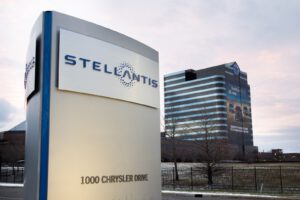
Two managers from Stellantis Fiat Chrysler Automobile Italy have been indicted in federal court in Detroit for their role in a conspiracy to cheat and to evade regulations of diesel engines sold to customers in the United States.
Prosecutors in the Eastern District of Michigan charged the two Italian citizens, along with a previously charged co-conspirator, for their alleged role in a conspiracy to defraud U.S. regulators and customers. They claim the pair made false and misleading statements about the emissions controls and fuel efficiency of more than 100,000 diesel vehicles sold in the United States by FCA U.S.
The indictment opens a new chapter in the scandal involving diesel engines that has engulfed companies such as Volkswagen AG, Daimler AG and now Stellantis/FCA. The issue forced manufacturers the world over to scuttle plans to add diesel-powered vehicles. It also cost manufacturers billions of dollars and forced automakers to put more emphasis on electric vehicles.
It also prompted a crackdown by regulators, particularly in the European Union, on emissions that contribute to serious health problems in urban areas. Regulators in the U.S., particularly in California, are also moving to increase regulation of diesel emissions.
Charges leveled

According to court documents, Sergio Pasini, 43, of Ferrera, Italy, and Gianluca Sabbioni, 55, of Sala Bolognese, Italy, two senior diesel managers at Fiat Chrysler Automobiles Italy S.p.A. (FCA Italy), a wholly owned subsidiary of Stellantis N.V. — along with a previously charged co-conspirator, Emanuele Palma, 42, of Bloomfield Hills, Michigan — were responsible for developing and calibrating the 3.0-liter diesel engine used in certain FCA vehicles.
Among their duties, the trio calibrated software in the diesel vehicles’ emissions control systems to meet emissions standards for nitrogen oxides formed when diesel fuels are burned at high temperatures, while reaching fuel efficiency targets set by FCA U.S.
FCA employees set software to cheat
The indictment charges that Palma, Pasini, Sabbioni and their co-conspirators purposely calibrated the emissions control functions to produce lower NOx emissions under conditions when the subject vehicles would be undergoing testing on the federal test procedures or driving “cycles,” and higher NOx emissions under conditions when the subject vehicles would be driven in the real world.
The group allegedly referred to the manner in which they manipulated one method of emissions control as “cycle beating.” As alleged, by calibrating the emissions control functions on the subject vehicles to produce lower NOx emissions while the vehicles were on the driving “cycle,” and higher NOx emissions when the vehicles were off the driving “cycle,” or “off cycle,” the three defendants purposely misled FCA’s regulators by making it appear that the subject vehicles were producing less NOx emissions than they did, according to court papers.

The trio also coached others to make false and misleading representations to FCA’s regulators about the emissions control functions of the subject vehicles in order to ensure that FCA obtained regulatory approval to sell the subject vehicles in the United States, according to the filing.
The indictment also alleges that Palma, Pasini and Sabbioni employed “cycle beating” to achieve best-in-class fuel efficiency and make the subject vehicles more attractive to FCA’s potential customers, i.e., by increasing fuel economy and reducing the frequency of a required emissions control system service interval.
Defendants face big penalties
Pasini and Sabbioni are each charged with one count of conspiracy to defraud the United States and to violate the Clean Air Act, one count of conspiracy to commit wire fraud, and six counts of violating the Clean Air Act.
If convicted, Pasini and Sabbioni each face up to five years in prison on the conspiracy count to defraud the United States and to violate the Clean Air Act, up to 20 years in prison on the conspiracy count to commit wire fraud, and up to two years in prison for each count of violating the Clean Air Act.
Palma is charged with one count of conspiracy to defraud the United States and to violate the Clean Air Act, one count of conspiracy to commit wire fraud, six counts of violating the Clean Air Act, and two counts of making false statements to representatives of the FBI and the U.S. Environmental Protection Agency’s Criminal Investigation Division.
If convicted, Palma faces up to five years in prison on the conspiracy count to defraud the United States and to violate the Clean Air Act, up to 20 years in prison on the conspiracy count to commit wire fraud, up to two years in prison for each count of violating the Clean Air Act, and up to five years in prison for each count of making false statements.
A federal district court judge will determine any sentence after considering the U.S. Sentencing Guidelines and other statutory factors, according to the U.S. Department of Justice.







